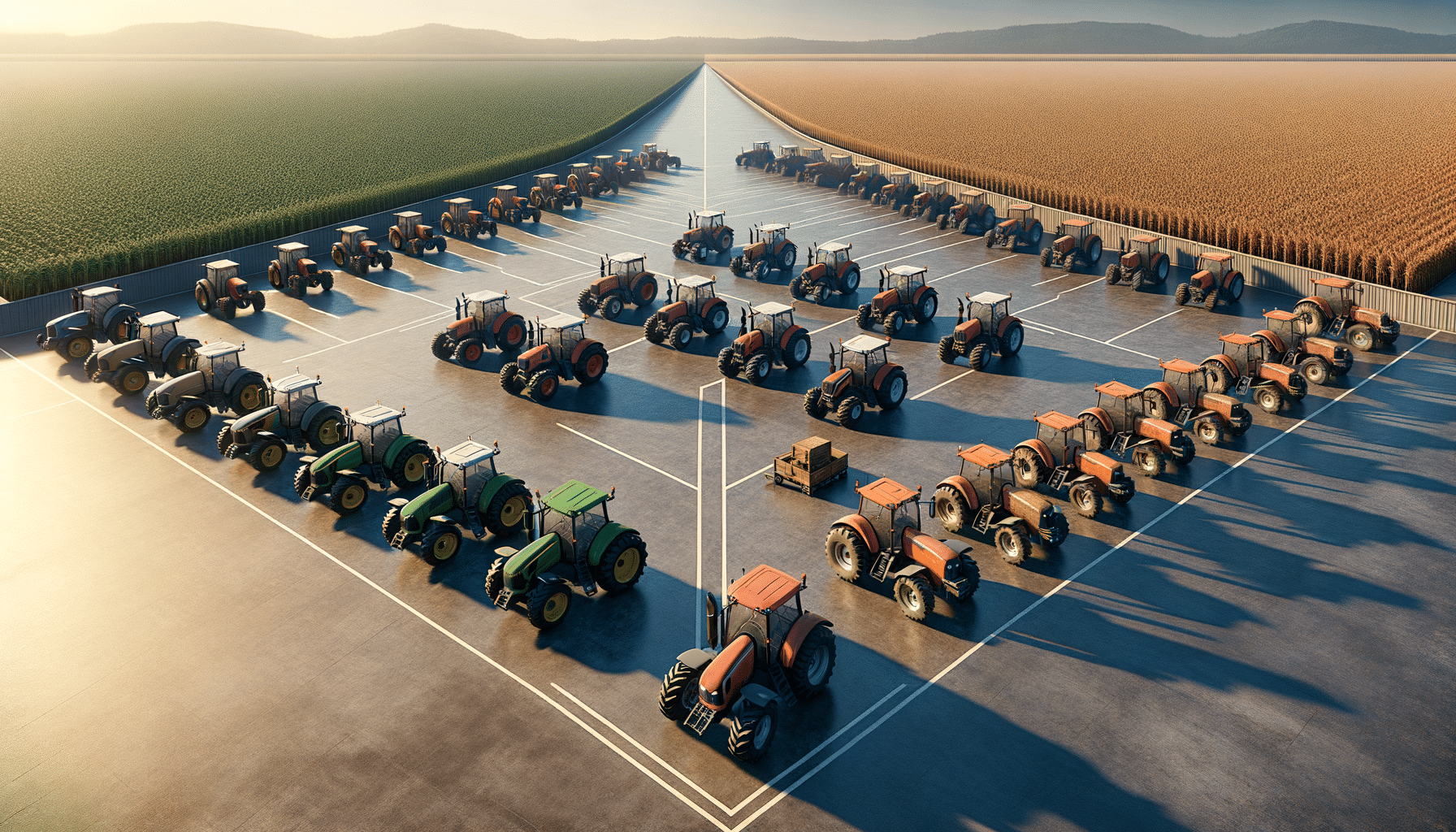Navigating the Tractor Market: An Insight into Compact and Preowned Tractors
Are you in search of a dependable tractor that meets your requirements? Our guide introduces you to a range of options, from compact models to preowned favorites. Whether you’re after a small tractor equipped with a loader and backhoe, or a sub-compact tractor cab, this comprehensive resource is designed to assist in your decision-making process.

Understanding Compact Tractors
Compact tractors have become a staple for many small to medium-sized agricultural operations due to their versatility and efficiency. These machines are designed to handle a variety of tasks, from plowing fields to mowing large lawns, making them a valuable asset for farmers and landowners alike. The compact size allows for easy maneuverability in tight spaces, a feature particularly beneficial when working in orchards or vineyards where larger tractors may struggle.
Compact tractors typically come with a range of attachments, enhancing their functionality. Common attachments include loaders, backhoes, and mowers, allowing users to customize their tractor to fit specific needs. This adaptability ensures that a compact tractor can be a long-term investment, capable of evolving with the demands of the farm or property.
When selecting a compact tractor, it’s crucial to consider the engine power, which typically ranges from 15 to 50 horsepower. The choice depends on the tasks you intend to perform. For instance, lighter tasks like mowing or light tilling might only require a tractor on the lower end of the power spectrum, while more demanding tasks such as heavy lifting or plowing may necessitate a more powerful engine.
The Benefits of Preowned Tractors
Opting for a preowned tractor can be a cost-effective way to acquire a reliable machine without the hefty price tag of a new model. Preowned tractors often come with a wealth of information regarding their performance history, providing potential buyers with insights into their reliability and maintenance needs. This transparency can be particularly appealing for those wary of investing in new machinery.
One of the primary advantages of purchasing a preowned tractor is the immediate availability of the machine. Unlike new models that might require waiting periods due to manufacturing or shipping delays, preowned tractors are typically ready for use upon purchase. Additionally, many preowned tractors come with existing attachments, offering further savings and convenience.
However, it’s essential to conduct a thorough inspection before purchasing a preowned tractor. Check for signs of wear and tear, particularly in areas prone to high stress, such as the engine and hydraulic systems. Ensure that maintenance records are available, as these can provide valuable insights into the tractor’s history and potential future performance.
Comparing Compact and Preowned Models
When deciding between a compact and a preowned tractor, it’s important to weigh the benefits and limitations of each option. Compact tractors offer the latest in technology and efficiency, often featuring advanced engines that comply with modern emissions standards. This can be an important consideration for those looking to minimize their environmental impact.
On the other hand, preowned tractors might not boast the latest technology, but they can offer robust performance and proven reliability. They are often sought after by those who prefer simplicity and ease of maintenance, as older models are typically less complex than their modern counterparts.
Another factor to consider is the cost. Compact tractors, being new, generally come with a higher price tag, which might include a warranty, providing peace of mind. Preowned tractors, while more affordable, might require more frequent maintenance, potentially offsetting the initial savings. It’s crucial to assess your budget and long-term needs when making this decision.
Key Considerations for Tractor Selection
Choosing the right tractor involves a careful assessment of your specific needs and circumstances. Start by identifying the primary tasks you need the tractor to perform. This will help determine the necessary horsepower and attachments, whether you are considering a compact or preowned model.
Next, consider the terrain and climate of your location. Compact tractors excel in areas requiring high maneuverability, while preowned tractors might be better suited for flat, expansive areas where durability is more important than agility. Additionally, take into account the availability of service and parts in your area, as this can significantly impact maintenance costs and downtime.
Finally, evaluate the total cost of ownership. This includes not only the purchase price but also ongoing expenses such as fuel, maintenance, and insurance. By taking a holistic view of the costs involved, you can make a more informed decision that aligns with your financial and operational goals.
Conclusion: Making an Informed Choice
Selecting the right tractor, whether compact or preowned, is a decision that requires careful consideration of various factors, including functionality, cost, and long-term needs. By understanding the strengths and limitations of each type, you can make a choice that will serve your agricultural or property management needs effectively.
Compact tractors offer modern technology and versatility, making them suitable for a wide range of tasks, while preowned tractors provide a cost-effective alternative with proven reliability. Weighing these options against your specific requirements will ensure that you invest in a tractor that enhances productivity and meets your operational demands.